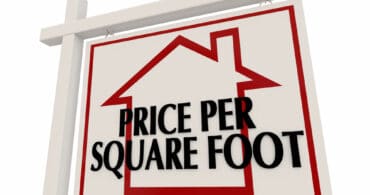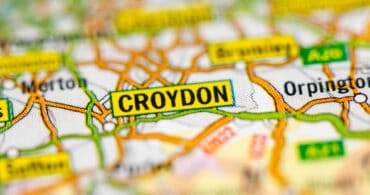Insights

Floods in Rental Properties: A Landlord’s Responsibilities
The Environment Agency says that there are over five million properties in England that face a risk of flooding. Landlords are right to worry over their responsibilities should a flood become a problem, especially if it leads to the property becoming uninhabitable. It is therefore useful to know what would be expected of you as a landlord in the event of a flood. Precisely what we are covering in this post.
Read More
A Landlord’s Guide to Protecting Tenants Against Legionnaire’s Disease
All landlords have legal responsibilities to ensure the health and safety of their tenants. Under these responsibilities, Legionnaire’s disease ranks as one of the most significant health concerns that must be considered when letting to tenants. Here’s why it’s vital to be aware of what Legionnaire’s disease is, why it is harmful, and how to check for and prevent it.

How to Use Price per Square Foot as a Property Investment Business Model
In the UK, the most common way to describe the size of a house is by number of bedrooms. In the USA and Europe however, the property’s internal area is the measurement of choice. The trouble with number of bedrooms is that it doesn’t really give a clear representation of property size. Here’s why property investment experts are suggesting that price per square foot is the best property investment business model when it comes to determining profitability.

An At-a-Glance Guide to Fair Wear and Tear for Landlords
Often misunderstood, fair wear and tear has long been an area of confusion both for landlords and tenants. The line between wear and tear and damage or neglect can be a fine one, but a lot rests on getting it right, because decisions made about charging for damage at the end of a tenancy depend upon it. This at-a-glance guide is designed to help you, as a landlord, understand precisely what fair wear and tear is, how it differs from damage and neglect, and how to minimise it during a tenancy.

4 Great Reasons to Invest in Buy to Let Property in Croydon
Croydon, town and borough, is thriving. And it is no wonder as, with such a significant level of investment, the area has recently been named the UK’s fastest growing economy. Here’s a look at some of the large scale development projects that are currently underway or in the pipeline, which could make Croydon a lucrative place to invest in buy to let property.

Professional vs DIY Property Inventory: Which is Best for Landlords?
A property inventory is beneficial to both landlords and tenants, and is vital when it comes to preventing and resolving disputes at the end of a tenancy. But what are the differences between a landlord DIY inventory and a professional report, and what are the risks involved in self-reporting?

Is Landlord and Tenant Mediation to Become Mandatory During Evictions?
A report published last month centring on whether people involved in litigation should be forced to take part in alternative dispute resolution (ADR) such as mediation, could potentially have considerable consequences for possession cases involving landlords and tenants.

Government Gas Boiler Ban: How Should Landlords React?
By 2025, gas boilers and other fossil fuel powered heating and hot water systems will be replaced by renewable heating systems in all new-build homes. This is part of a government drive to achieve net-zero CO2 emissions by 2050. The ‘Future Homes Standard’ is also aimed at lowering fuel bills. But how will the move affect private landlords?

Hot Weather Property Maintenance Tips for Landlords
As a nation we still tend to struggle with any form of prolonged extremes of weather. The trouble with a heatwave is that, as the mercury rises, so various property-related issues come out of the woodwork. Landlords may find themselves experiencing issues that wouldn’t usually surface. Let’s take a look at what some of these issues are, and how to tackle them.

London Borough of Culture 2023 a Boon for Croydon
Introduced by Mayor of London Sadiq Khan in 2017, the Mayor’s London Borough of Culture award offers more than £1m of funding for boroughs to host a range of cultural events, activities and initiatives over a whole year. In spring 2019, the mayor announced that Croydon had won the award for 2023. As the celebrations draw closer, we look at how this important accolade will make a difference to the borough, and potentially make it more attractive to buy-to-let investors.






